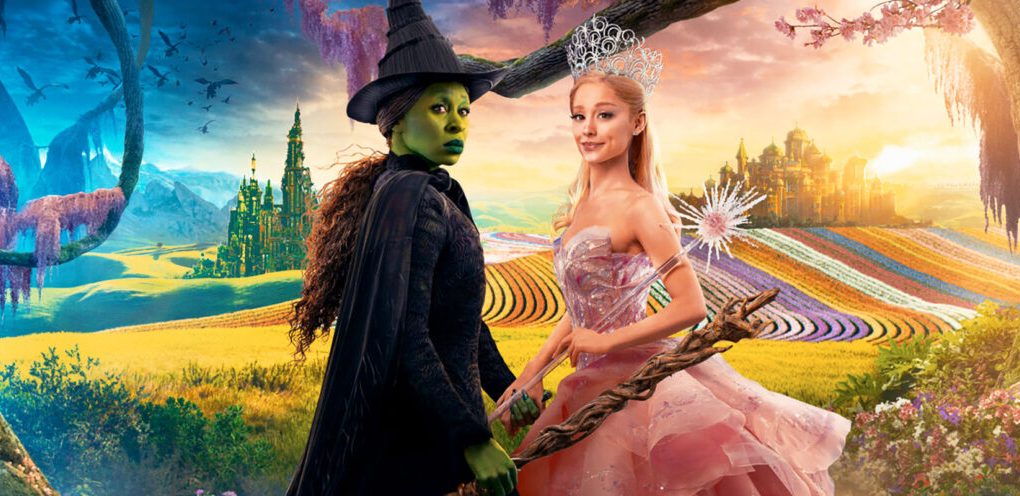kimzolciakwedding.com – Wicked, the Broadway musical that has – captivated audiences worldwide, has become a defining theatrical experience for millions since its debut in 2003. Based on Gregory Maguire’s novel Wicked: The Life and Times of the Wicked Witch of the West, the show offers a fresh and thought-provoking perspective on the classic story of The Wizard of Oz. It reimagines the lives of the witches from Oz, focusing on the unlikely friendship between Elphaba, the misunderstood green-skinned girl who will become the Wicked Witch of the West, and Glinda, the Good Witch of the North. With its powerful music, memorable characters, and profound themes of identity, morality, and societal expectations, Wicked has left an indelible mark on the theater world.
Origins: The Story Behind Wicked
The Source Material: Wicked by Gregory Maguire
Wicked the musical is based on the 1995 novel Wicked: The Life and Times of the Wicked Witch of the West by Gregory Maguire. Maguire’s novel serves as a reimagining of L. Frank Baum’s original 1900 classic The Wonderful Wizard of Oz. While Baum’s tale presents a simple narrative of good versus evil, Maguire’s Wicked complicates this dichotomy by exploring the backstories of characters who were traditionally seen as villains in Baum’s world.
The novel focuses on Elphaba, the green-skinned girl born with unusual magical abilities, and her journey from an outcast to the infamous Wicked Witch. Maguire delves into her childhood, her relationship with her family, and her friendship with Glinda, providing depth to the characters that Baum never explored. In contrast to Baum’s portrayal, Elphaba is not born evil, but rather is shaped by her experiences and the prejudices of society.
The book also introduces a more complex political system in the land of Oz, featuring a corrupt government, discrimination, and the rise of a tyrannical figure, the Wizard. These themes are central to both the novel and the musical, which presents the story in a more accessible, entertaining format while still retaining its underlying social commentary.
From Page to Stage: The Development of Wicked
The journey from novel to stage began in the early 2000s, when producer Marc Platt and director Joe Mantello approached Stephen Schwartz to adapt Wicked into a musical. Schwartz, a seasoned composer known for his work on Godspell and Pippin, was excited by the challenge and began working on the music and lyrics.
The musical’s plot follows the broad strokes of Maguire’s novel but streamlines the narrative for the stage. While the book’s political intrigue is still present, the musical emphasizes the emotional core of Elphaba and Glinda’s relationship. As Elphaba struggles with her identity and sense of justice, Glinda’s transformation from a self-absorbed socialite to a courageous leader provides a powerful contrast.
Wicked premiered on Broadway on October 30, 2003, at the Gershwin Theatre, where it quickly became a runaway success. With a score that included songs like “Defying Gravity,” “Popular,” and “For Good,” Wicked resonated with audiences of all ages. The musical’s combination of memorable music, stunning visual effects, and powerful themes quickly turned it into a cultural phenomenon.
Characters and Themes: The Heart of Wicked
Elphaba: The “Wicked” Witch
Elphaba, the character at the heart of Wicked, is a deeply complex figure. Unlike the villainous portrayal in The Wizard of Oz, Elphaba in Wicked is a character filled with contradictions—intelligent, strong-willed, and fiercely independent, yet deeply empathetic and vulnerable. Her green skin, a symbol of her difference from others, becomes a source of alienation and prejudice, even as it sets her apart as someone with unique abilities.
Her journey is one of self-discovery and resistance to societal norms. From a young age, Elphaba is marked as an outsider, a symbol of difference and “otherness.” She struggles to fit into the world around her, even though she seeks to change it for the better. Throughout the musical, Elphaba’s development from a misunderstood girl into a woman who dares to defy the corrupt powers of Oz is portrayed with passion and grit.
The iconic song “Defying Gravity” serves as Elphaba’s declaration of independence. In this moment, she embraces her power and refuses to let others define her, a theme that resonates with anyone who has ever felt marginalized or oppressed. Elphaba’s transformation into the “Wicked Witch of the West” is not a result of inherent evil, but rather a consequence of a system that punishes those who dare to challenge its norms.
Glinda: The “Good” Witch
Glinda, the blonde and bubbly “Good Witch,” is often seen as the foil to Elphaba’s dark, serious persona. But in Wicked, Glinda is a character with much more depth than the shallow socialite she initially appears to be. While she starts as a somewhat superficial character, more concerned with popularity and status than with deeper matters, Glinda grows throughout the show, learning from Elphaba and finding her own voice as a leader.
Her friendship with Elphaba is central to the story. Initially, the two women have vastly different worldviews—Glinda is initially enchanted by the idea of fitting into Oz’s societal structures, while Elphaba is focused on justice and freedom. However, as they experience trials together, their bond deepens. Glinda’s arc is one of self-realization and the gradual transformation from someone who follows the rules to someone who understands the importance of questioning authority.
The song “Popular” is Glinda’s signature number, full of bubbly charm and humor. However, it also subtly hints at Glinda’s insecurities and the pressures she faces to conform. By the end of the musical, Glinda realizes that true leadership requires empathy and courage, not just popularity.
The Wizard and Other Characters
While Elphaba and Glinda take center stage, other characters like the Wizard, Fiyero, and Nessarose add layers of complexity to the story. The Wizard, a symbol of political power and deception, is revealed to be a much less grand figure than he appears, offering a critique of those who manipulate systems for their own benefit.
Fiyero, a love interest who starts as a carefree prince, undergoes his own transformation as he falls in love with Elphaba. His character adds an element of romance to the story, but also highlights the theme of change and personal growth. Nessarose, Elphaba’s sister, is a tragic character who is similarly marked by her difference, though she takes a darker path than Elphaba. These characters, while secondary, contribute to the broader thematic exploration of good versus evil, love, loyalty, and sacrifice.
The Music: A Key Ingredient to Wicked’s Success
Stephen Schwartz’s Score
One of the most compelling aspects of Wicked is its memorable and powerful score. Composed by Stephen Schwartz, the music combines elements of traditional Broadway show tunes with a more contemporary, pop-infused sound. The songs are integral to the storytelling, often providing the emotional depth that words alone cannot convey.
Some of the most iconic songs in Wicked include:
- “Defying Gravity”: Arguably the most famous song from the musical, “Defying Gravity” is Elphaba’s triumphant anthem, where she decides to go against the status quo and embrace her power.
- “Popular”: Glinda’s show-stopping number, a fun and light-hearted song that also reveals her insecurities and desire for validation.
- “For Good”: A heartfelt duet between Elphaba and Glinda, this song explores the theme of friendship and the lasting impact that people have on each other’s lives.
- “No Good Deed”: A powerful solo by Elphaba, “No Good Deed” showcases her inner turmoil and growing disillusionment with the world around her.
The music of Wicked has become anthemic, with songs that resonate deeply with audiences. The way the music complements the story is one of the reasons the musical has had such enduring popularity.
Themes: Challenging Prejudices and Defying Expectations
Morality and Perception
One of the central themes of Wicked is the concept of good versus evil, and how these concepts are often subjective. In the world of Oz, Elphaba is labeled as “wicked” because she dares to challenge the established order. Yet, the musical makes it clear that Elphaba’s actions are motivated by a desire to do good and to bring justice to a corrupt world. This exploration of morality and the ways in which society labels individuals based on superficial characteristics is one of the musical’s most powerful aspects.
Friendship and Sacrifice
Another important theme in Wicked is the deep bond of friendship between Elphaba and Glinda. Despite their differences, the two women support each other and grow through their experiences. Their relationship demonstrates the importance of empathy, understanding, and the willingness to make personal sacrifices for the people we love.
The Quest for Identity
Wicked is also a story about self-discovery. Both Elphaba and Glinda go through personal transformations, learning about who they are and what they stand for. Elphaba’s journey is one of embracing her power and refusing to be defined by others’ expectations, while Glinda learns that true leadership and goodness come from within, rather than from external validation.
Legacy: The Enduring Popularity of Wicked
Since its premiere in 2003, Wicked has become one of the most successful and beloved musicals in Broadway history. It has won numerous awards, including three Tony Awards and a Grammy Award for Best Musical Show Album. Wicked has been performed in theaters around the world and continues to captivate new audiences with its powerful message, memorable music, and relatable themes.
The musical has also inspired a broader cultural movement, with fans creating fan art, writing fan fiction, and forming communities dedicated to the show. The themes of self-empowerment, defying societal expectations, and challenging prejudices have resonated deeply with audiences, making Wicked a cultural touchstone.
Conclusion: A Musical That Defies Gravity
Wicked is much more than just a musical—it is a timeless story of friendship, identity, and the blurred lines between good and evil. Its exploration of complex characters, powerful themes, and unforgettable music has made it a beloved part of the theatrical landscape. As it continues to captivate audiences around the world, Wicked remains a shining example of the power of theater to challenge perceptions and inspire change.



